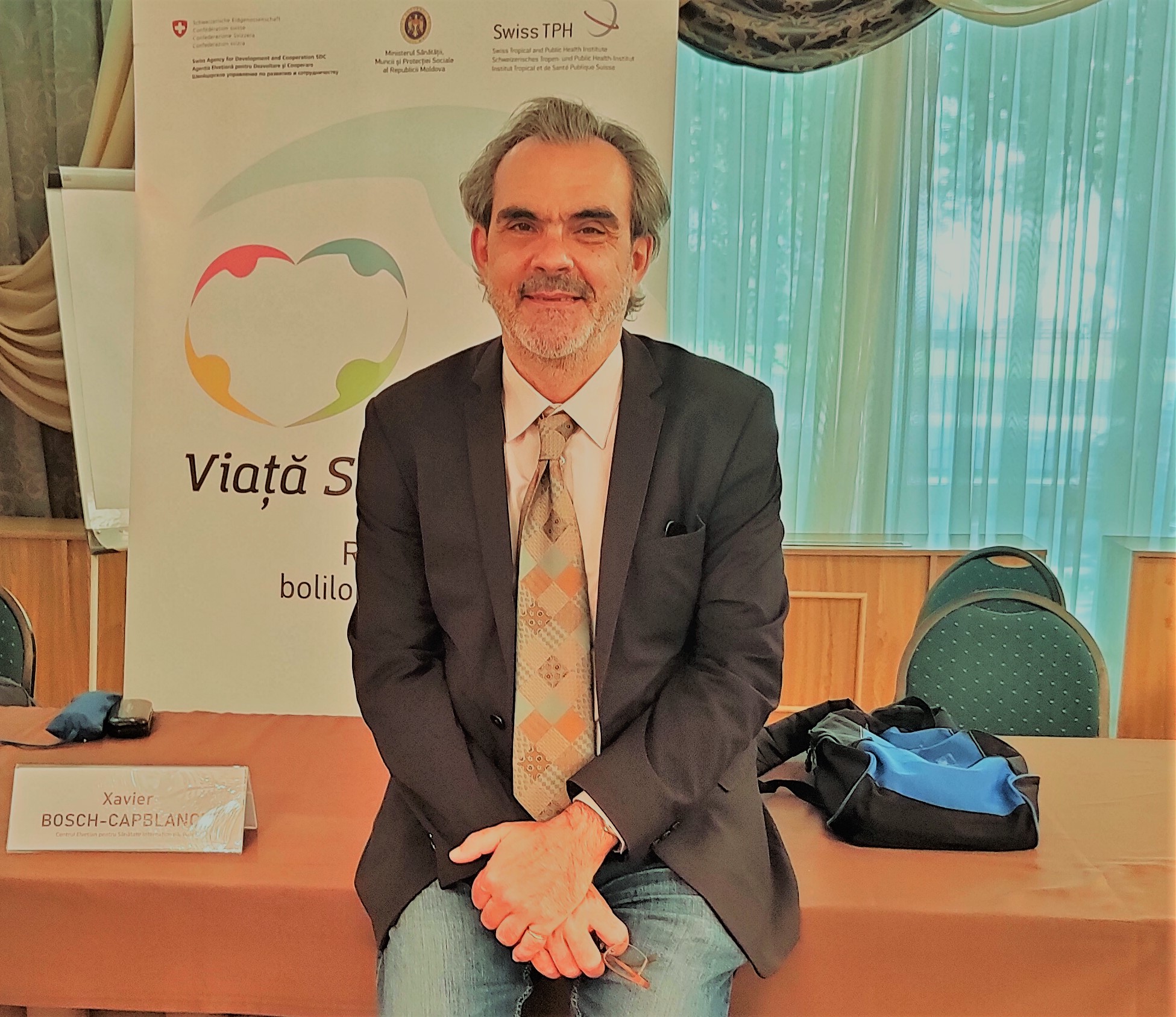At the beginning of June, the Moldovan health system had the opportunity to discuss one of the most complex concepts of the medical act - the quality. 65 managers and family doctors have analyzed this issue at the workshop "Concepts and approaches on the quality in primary medical care" provided by the Swiss expert on quality of care at the Swiss Institute of Tropical Diseases and Public Health, Xavier Bosch-Capblanch. And because the exchange of views and perceptions left room for another series of quality workshops, planned for this fall, we asked Xavier to keep the flame of interest alive, answering a few questions.
We invite you to rediscover the world of quality while being on a coffee break with Xavier Bosch-Capblanch, a Swiss healthcare expert.
Healthy Life Project: What is the quality in Primary Health Care?
Xavier Bosch-Capblanch: Nowadays, everyone understands quality as a integral component of any health care activity. It is not optional or an "add on". We all do things with a certain level of quality and we all should strive to achieve the best quality with the resources we have. We have to consider that there is overwhelming evidence linking "poor quality of care" with mortality. This is not always seen, mainly because we tend not to measure and analyse our failures or their consequences. We can summarise saying that quality is an integral part of any modern health care delivery system.
Healthy Life Project: How can we improve quality in Primary Health Care?
Xavier Bosch-Capblanch: The only way of improving quality is doing "more" of what works well and doing "less" of what does not work or harms. Interventions to improve quality have to be based on strong evidence, in the same way that we require strong evidence to recommend a medication or a vaccine. Many interventions seem to work, but when we analyse their effects and harms, they do not look so good. Think for example on certain health care financing interventions that seem very reasonable but that risk leaving vulnerable populations without access to services. For example, in some countries it has been shown that out of pocket payments for health care increased funding of services but was a barrier for some people to access services. Interventions can take place at each level, from central level (for example, producing clinical guidelines) to community level (for example, introducing patients’ feed-back mechanisms); but commitment from high level managers and politicians to support quality of care is paramount for these interventions to work.
Healthy Life Project: What are the basic principles of quality in Primary Health Care?
Xavier Bosch-Capblanch: There are four basic principles. (1) Each country has to come up with its own definition of quality, adapted to the reality in a given situation. "One size fits all" does not work for quality. (2) The definition has to be concretised in dimensions; for example: access, acceptability, user-friendliness, efficacy... These are the dimensions that we can measure to assess quality. (3) Quality equally takes into account all perspectives in health care: policy makers, those who pay the services, health care providers and patients. It is capital that health care is patient-centred. (4) Quality has to be based on the best available evidence. It is not about 'inventing' things or doing things that look ok. We need to be serious about quality because it can cause death.
Healthy Life Project: What is your first impression about the level of quality in Primary Health Care, since you have visited some Health Centers in the Republic of Moldova, and talked with the doctors and nurses that influence quality in institution?
Xavier Bosch-Capblanch: I cannot issue an opinion about quality of Primary Health Care in Moldova, because my experience is very limited. What I have seen is very committed people, with a lot of knowledge and ideas to learn from, and who have achieved remarkable progress in the country, as can be seen by the evolution of the national health indicators over the past years. I have been privileged to share my experience and learn about the Moldovan experience from family doctors, from staff working in managerial and policy making positions and from the Viata Sanatoasa project staff, particularly Ala Curteanu and Natalia Zarbailov. All my gratitude to them.

